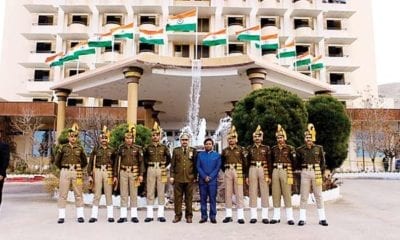Opinion
Indian Diaspora and their implications in recent times
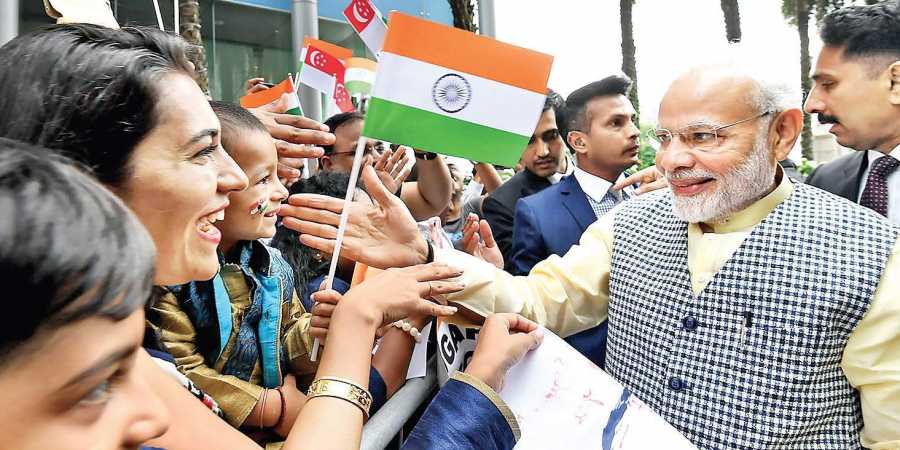
Since the dawn of the history human races have been traveling from one region to another in search of, starting from basic amenities to a better lifestyle. It certainly creates a term called Diaspora. Diaspora originates from a Greek word that meant scattering or dispersion (of seeds). It was first used in the 6th century BC to explain the Jewish exile from Babylon and later to describe the population of Jews living outside Palestine. Diaspora, therefore, signifies a movement and spread of people outside their homeland.
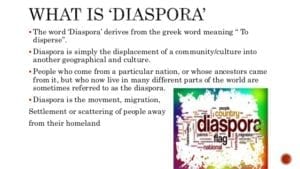
Earlier, such migration was more or less pertinent to be in search of food, shelter, and resources. Post World War-II with the advent of new science and technologies, the migration was brought about with the movement of labor to the industrialized countries for jobs and in search of a better quality of life. The most recent trend of migration is influenced by globalization and the demand for skilled expertise.
When it comes to Indian Diaspora and their presence across the globe it speaks about both Old Indian Diaspora that is before the Independence period and New Diaspora in the post Independence period. From Google CEO Sundar Pichai to Nobel laureate scientist Har Gobind Khorana, the list of Indians abroad and their contribution to the world goes endlessly. The count of it has increased to 17 million in recent times and largest in the world according to the UN’s International migrant stock 2019. It now comprises 6.4% of the total global migrant population. The recent gathering of the Indian-American community in Houston has proved to be a special moment in India’s Diaspora diplomacy.
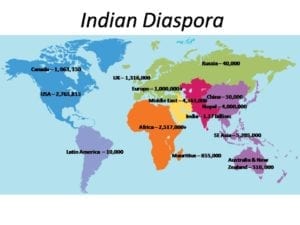
In recent times amidst the COVID-19 crisis, Indian Diaspora poses hefty challenges to the Indian Government. Their rescue operation raised few questions whether they’re still inevitable and indispensable as they had left for their own causes and benefits. Before reaching a concrete conclusion we must understand their significance and contributions to India.
Mahatma Gandhi’s struggle for ending institutionalized discrimination against Indians in South Africa became an inspiring legend for enduring sentimentalism about the diaspora in modern India. The Diaspora also became a vehicle for promoting the cause of Indian independence among the political elites of major countries. As the independence movement gathered momentum at home, it began to influence many Indian communities abroad.
The act of migration is not just limited to geographical limits; rather it is a cultural extension. Let us take the example of the Sikh community. The Sikhs are one of the largest migrants from India to the UK, Canada, and many other countries. They have very well maintained their culture and ethnic existence for decades.
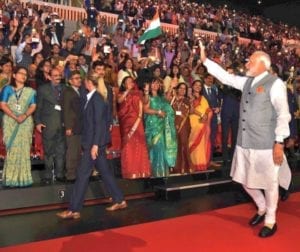
A remittance is a transfer of money by a foreign worker to an individual in his or her home country. Money sent home by migrants is one of the largest financial inflows to developing countries. A/c to the World Bank, India retained its position as the world’s top recipient of remittances with its diaspora sending a whopping $79 billion back home in 2018. Without these remittances, India’s balance of payment position would have looked worse. India is followed by China (USD 67 billion), Mexico (USD 36 billion), the Philippines (USD 34 billion), and Egypt (USD 29 billion).
Diaspora acts as ‘agents of change’ facilitating and enhancing investment, accelerating industrial development, and boosting international trade and tourism. Diaspora’s motives to invest in India are long-lasting as many of them wish to establish a long-term base in India.
Another tangible long-term advantage in nurturing ties with an active diaspora is an accelerated technological sector and increased socio-economic development. Some examples to illustrate this phenomenon are Bengaluru, Gurugram and Hyderabad as thriving IT hubs that not only house multinational companies (MNCs) but also multiple Indian start-ups. The government can further tap this transnational entrepreneurship, including support for entrepreneurs and small businesses in India in the form of knowledge transfers and finances from the diaspora.
India’s permanent membership to the UNSC can become a reality with support from the diaspora. According to Article 108 of the Charter, for a UN reform, an affirmative vote from two-thirds of its members and support from the five permanent members is required. India has demonstrated its diplomatic influence with the reappointment of Justice Dalveer Bhandari to the International Court of Justice in November 2017, when it secured two-thirds of the votes at the UN. Apart from political pressures and ministerial and diplomatic level lobbying, India can leverage its diaspora to influence states such as Canada and Mexico to support India’s membership.

A less tangible but important advantage in having a large immigrant group is “diaspora diplomacy”. Historically, India has benefitted from its diaspora. Two instances stand out: lobbying for the US-India Civilian Nuclear Agreement Bill in 2008 and their remittance inflow. The recent engagement of PM Modi in Houston is a continuation of his extraordinary political investment in engaging the Indian diaspora. It is based on the recognition that a large and very successful diaspora has widened India’s footprint and can contribute to the achievement of India’s domestic and international goals.
Many of the themes of India’s contemporary diaspora policy had their origins in the approach of the Indian national movement before independence. Concern for the treatment of Indian indentured labor around the world became an important part of the rise of the national movement in the early 20th century and the formation of its international consciousness. The nationalist backlash against the Indian communities in Africa and Asia in the 1950s and 1960s saw Delhi consciously distance itself from the diasporic communities. As India turned inwards, Delhi also took a dim view of the “brain drain” as many well-trained Indians began to look for opportunities elsewhere.
With coming to power, PM Modi has discarded the old attitude of reapproaching the diaspora, especially that in the West, for abandoning their responsibility to their motherland by leaving its shores. Instead, he has affirmed that India is proud of the diaspora’s achievements around the world. He exhorted them to actively contribute to the acceleration of India’s economic and social development. Modi has also recognized that the connection with the diaspora could be leveraged to influence the political classes of the host nations.
Relaxing the visa norms for the overseas communities, improving physical connectivity and the ease of doing business in India has been the policy consequences of Modi’s more intensive outreach to the diaspora. From being a largely inconsequential country after Independence, in part due to its active Non-Alignment Policy, India is today seen as a strong nation headed by a strong leader.
India has enjoyed being viewed more favorably by the world since 2014, and the diaspora can further these perceptions. As much of India’s foreign policy aims to translate partnerships to benefits for key projects like Swachh Bharat, Clean Ganga, Make In India, Digital India, and Skill India, the diaspora has plenty of scopes to contribute. The diaspora can step up and act as Indian ‘ambassadors’, as it is insufficient and ineffective for a country or its missions abroad to rely only on press releases to change public opinion. The diaspora can provide the requisite strategic impulse, which makes it all the more important to unlock their potential. While they certainly do not determine policy, they can effectively shape it and act as “bridge-builders” between their home and adopted countries.


